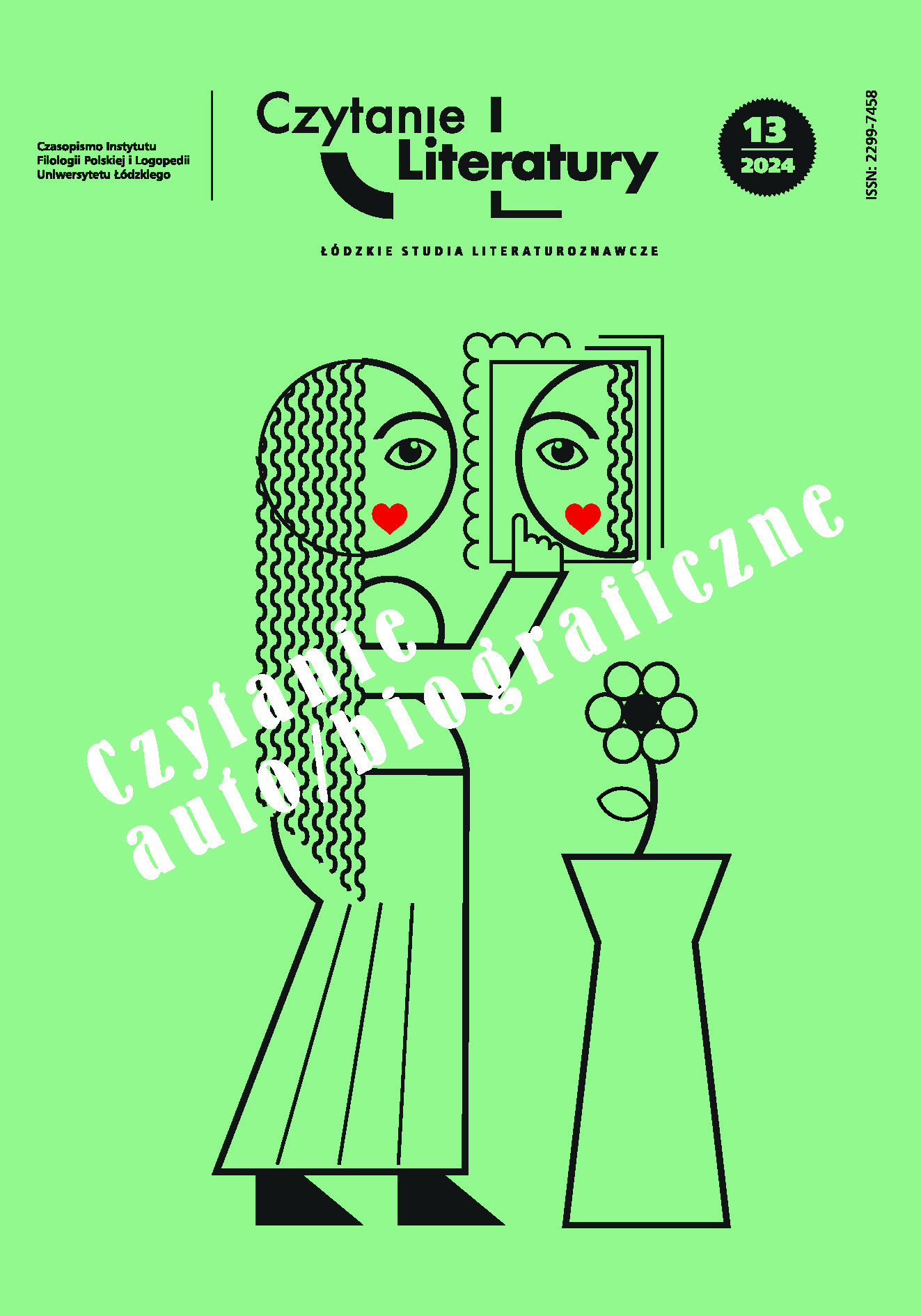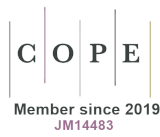Mimicry, auto-fiction, genealogy. Playing (down) trauma, reconstructing autobiography in the postmemory writing of Monika Rakusa
DOI:
https://doi.org/10.18778/2299-7458.13.06Keywords:
Holocaust, trauma, post-memory, autobiography, mimicry, auto-fictionAbstract
The article aims to address one of the borderline cases of contemporary autobiographical narratives. Being aware of the limitations characteristic of postmemory practices, the writing of Monika Rakusa creates a self-reflective and ironic variety of postmemory biographical prose, undertaking a complex game with auto-fictional and genre forms (e.g. diaries/blogs typical of life writing and diaries alluding to that of Bridget Jones). The ironic strategy of creating genological ‘mixtures’ captures the perplexities of the hybridised positioning of the Jewish identity of the narrator, who, on the one hand, struggles with intergenerational trauma, anti- Semitism and the indefinable status of her subaltern background and, on the other, is aware of the performative nature of both her own and social biographical practices/compulsions, and seems to be caught up in the mechanisms of mimicry described by Homi Bhabha, the pretense of another identity as a continuation of the strategy of hiding and masking Jewishness. This article investigates at length the relationship between auto-fiction, post-memory and autobiographical modality of family narratives and the ironic distancing techniques contained in three prose texts: 39,9 [39.9]; the short story collection titled Cień [Shadow] and the novel Żona Adama [Adam’s Wife]. In t hese successive variants of ‘parabiography’ (Artur Sandauer), literariness exposed auto-fictionally as a particular form of ‘wounding mimicry’ mediates both the areas of ‘Jewish’ experience of anti-Semitism and trauma, and the conventional formulas of sincerity of life writing, which are treated at a distance, as well as postmemory efforts to understand the past and the ironic symptoms of mimicry.
Downloads
References
Bhabha H., Mimikra i ludzie. O dwuznaczności dyskursu kolonialnego, [w:] H. Bhabha, Miejsca kultury, przeł. T. Dobrogoszcz, Kraków 2010.
Google Scholar
Cuber M., Metonimie Zagłady. O polskiej prozie lat 1987–2012, Katowice 2013.
Google Scholar
Gilman S., The Jewish Foot. A Foot-Note to the Jewish Body, [w:] S. Gilman, The Jew’s Body, New York–London 1991.
Google Scholar
Grzemska A., Matki i córki. Relacje rodzinne i artystyczne w autobiografiach kobiet po 1989 roku, Toruń 2020.
Google Scholar
DOI: https://doi.org/10.12775/978-83-231-5731-1
Hirsch M., Introduction, [w:] Rites of Return: Diaspora Poetics and the Politics of Memory, New York 2011.
Google Scholar
Hirsch M., Mothers and Daughters, „Signs” 1981, vol. 7, no. 1 (Autumn), s. 200–222, https://doi.org/10.1086/493870
Google Scholar
DOI: https://doi.org/10.1086/493870
Hirsch M., The Mother/Daughter Plot. Narrative, Psychoanalysis, Feminism, Bloomington 1989.
Google Scholar
Kestenberg J., A metapsychological assessment based on an analysis of a survivor’s child’, [w:] Generations of the Holocaust, eds M.S. Bergman, M.E. Jucovy, New York 1982, s. 88–102.
Google Scholar
Lis J., Obrzeża autobiografii. O współczesnym pisarstwie autofikcyjnym we Francji, Poznań 2006.
Google Scholar
Malin J., The Voice of the Mother: Embbeded Maternal Narratives in Twentieth-Century Women’s Autobiographies, Carbondale 2000.
Google Scholar
McGlothlin E., Second-Generation Holocaust Literature. Legacies Survival and Perpetration, Rochester NY, 2006, https://doi.org/10.1515/9781571136855
Google Scholar
DOI: https://doi.org/10.1515/9781571136855
Melchior M., Zagłada a tożsamość. Polscy Żydzi ocaleni „na aryjskich papierach”. Analiza doświadczenia biograficznego, Warszawa 2004.
Google Scholar
Panas W., Pismo i rana. Szkice o problematyce żydowskiej w literaturze polskiej, Lublin 1996.
Google Scholar
Rakusa M., 39,9, Warszawa 2008.
Google Scholar
Rakusa M., Cień, Warszawa 2014.
Google Scholar
Rakusa M., Żona Adama, Warszawa 2010.
Google Scholar
Rose J., Mothers. An Essay of Love and Cruelty, Farrar, Straus and Giroux, New York, 2018.
Google Scholar
Schulte Nordholt A., Perec, Modiano, Raczymow. La Génération d’après et la mémoire de la Shoah, Amsterdam 2008, https://doi.org/10.1163/9789401205962
Google Scholar
DOI: https://doi.org/10.1163/9789401205962
Turczyn A., Autofikcja, czyli autobiografia psychopolifoniczna, „Teksty Drugie” 2007, nr 1–2.
Google Scholar
Ubertowska A., „Mimetyzm zranienia”, konflikty reprezentacji, [w:] A. Ubertowska, Świadectwo – trauma – głos. Literackie reprezentacje Holocaustu, Kraków 2007.
Google Scholar
Volkan V., Traumatized Societes and Psychological Care: Expanding the Concept of Preventive Medicine, “Mind and Humanism” 2000, no. 3, s. 177–194.
Google Scholar
Yerushalmi Y.H., Freud’s Moses, Judaism Terminable and Interminable, New Haven–London 1991.
Google Scholar
Zieniewicz A., Pakty i fikcje. Autobiografizm po końcu wielkich narracji (szkice), Warszawa 2011.
Google Scholar
Downloads
Published
How to Cite
Issue
Section
License

This work is licensed under a Creative Commons Attribution-NonCommercial-NoDerivatives 4.0 International License.










